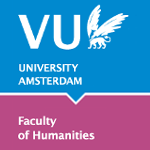Home page >
Data collection > Digital archives >
Introduction
Introduction
There is a growing body of digitized source material available on the internet. Although digitized sources can often be found on the internet using a general search engine (like Google or DuckDuckGo), the quality of what you find is often questionable, mainly because of lacking or insufficient documentation. Most relevant sources can be found in web based archives or specialized collections that are provided by academic institutions, libraries, archives and commercial publishing houses. Usually these sources are well documented and maintained, which makes them suitable for academic research purposes.
It is not possible to give a comprehensive overview of digital archives and collections on this site. We have therefore limited ourselves to mentioning a number of important, large open access collections of digitized source material in the Netherlands and abroad, as well as providing an overview of the commercial text collections for which the VU University Library has licences.
Various university libraries offer portals listing open acces collections. Examples are:
Of course you can also consult your teacher for specialized collections that are relevant to your research subject.
Further remarks
-
Using existing digitized sources can have an number of implications, which are discussed on a separate page of this workbench.
-
Most archives and collection websites have their own search interface with which to locate the sources you need. We strongly advise you to use the advanced search options of these interfaces and study the help information of these features before you do so.
-
Copyright is an important but complex issue that is connected with the use of source material. Rule of thumb is that it is allowed to make use of copied source material for educational purposes and cite from them (text) or copy them (images) in your research report. As soon as you intend to publish the material in public (e.g. on a weblog), you should seriously consider copyright aspects. This not only applies to material that is younger than 70 years (which is usualyy copyright protected and for the use of which you will have to get permission from the copyright holder), but also to older material, which may be modified in such a way that the resulting version cannot be distributed freely either. You should check the copyright notice(s) that are relevant to the sources you use. Moreover, you should always credit the sources you have used.
VU collections
Two special VU collections are:
-
Beeldbank UB VU (Image database UB VU)
The VU University Image database comprises various collections containing clay tablets, engraved portraits, historical maps, and many more.
-
 Geheugen van de VU
Geheugen van de VU  (Memory of the VU)
(Memory of the VU)
Website maintained by university historian dr Ab Flipse where he collects and presents the university's history and heritage to a wide audience, thereby also promoting research into its history. This website is also used in teaching.


 The University Library of the UvA maintains the
The University Library of the UvA maintains the 
 (Memory of the VU)
(Memory of the VU)